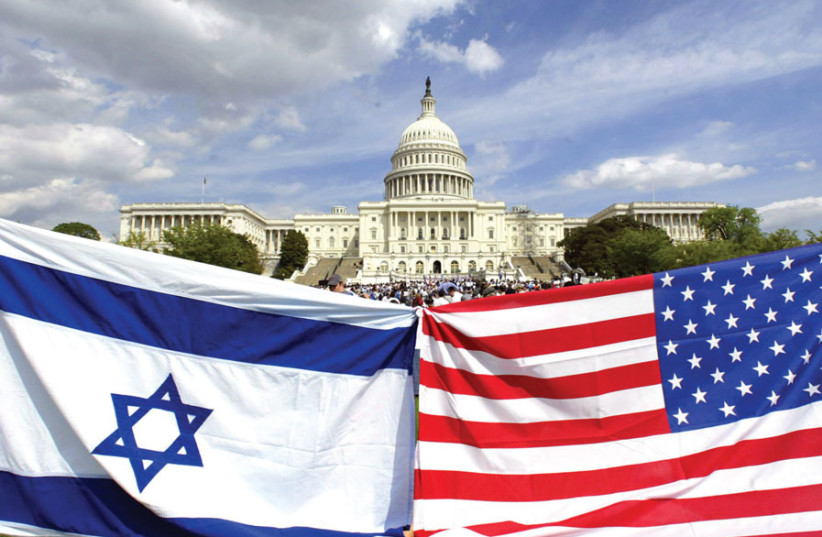Analyzing Israel’s stance on a potential American-Iranian accord, Prime Minister Benjamin Netanyahu asserts a resolute position, affirming that Israel will not be bound by any agreement with Iran. Israel, he adds, will take necessary measures for self-defense.
However, it appears that there is a growing inclination within Israeli circles toward accepting a framework of understanding between Washington and Tehran, facilitated by various intermediaries such as the Sultanate of Oman.
Some influential Israeli figures argue that an “understanding” might entail fewer obligations compared to a formal agreement. Nonetheless, the primary focus remains on achieving consensus regarding the revival of the 2015 nuclear deal and the renewal of its provisions, particularly those pertaining to uranium enrichment in Iranian nuclear facilities.
Could Israel accept a "mini-deal" on the Iran nuclear program?
During an interview on Channel 12, Knesset Foreign Affairs and Defense Committee chairman MK Yuli Edelstein expressed his views on the nature of the potential agreement. He described it as more of a mini-deal or a memorandum of understanding, rather than a comprehensive agreement. Edelstein further emphasized that Israel could accept such an arrangement if it includes robust oversight.
Interestingly, the Prime Minister’s Office refrained from commenting on Edelstein’s statements and their alignment with the government’s standpoint, suggesting the existence of divergent perspectives within Israel’s government, legislative, and party spheres. This divergence of views is a positive development that allows for flexibility in establishing a common ground between Israel and the US regarding the nuclear agreement, rather than a rigid and uncompromising Israeli position.

The underlying premise remains unchanged: Israel, irrespective of the ruling coalition in power, recognizes the utmost significance of maintaining its exceptionally strong alliance with the US. Simultaneously, Washington, regardless of the governing party or individual, cannot afford to compromise a deal that would jeopardize Israel’s security and core interests, particularly with the forthcoming 2024 US presidential elections on the horizon.
THE ONGOING developments reflect a strategic maneuver aimed at safeguarding the interests of both allies. American negotiators can exploit Israel’s consistent refusal to endorse the revival of the nuclear agreement as a means to apply pressure on Iran and extract the most advantageous concessions.
The primary objective here is to ensure Israel’s security in the face of the Iranian nuclear threat while preserving Israel’s strategic flexibility. This is achieved by consistently asserting Israel’s non-binding stance on any agreement between the US and Iran regarding the nuclear program. By doing this, Israel aims to neutralize or delay the threat posed by Iran’s nuclear ambitions without compromising its own ability to maneuver tactically.
The alignment of positions between refusing to commit to any American-Iranian agreement, on one hand, and advocating for stricter conditions within such an agreement, or even diluting its form to fall under the category of understandings rather than formal agreements thereby allowing future US administrations to disengage if necessary, likely serve both Israel’s and Iran’s interests, albeit in different ways.
Iran has the option to dissociate itself from any potential understandings reached and it is likely that Iranian negotiators would find this format agreeable, due to its limited binding force. This lack of substantial binding force is primarily due to the emphasis on mutual respect as opposed to relying on international law to address violations.
Understandings, or protocols of understanding, are viewed as a preliminary stage preceding formal treaties and agreements between nations and, consequently, lack legal enforceability. Experts perceive them as “potential agreements” rather than concrete ones.
Nevertheless, Israel effectively capitalizes on its position concerning American actions toward Iran in other arenas. Of particular interest is the keen observation of the intensive efforts made by the US to finalize peace agreements with other Arab and Gulf actors, notably the Kingdom of Saudi Arabia, which garners exceptional attention from both Israeli and American stakeholders.
UNDENIABLY, THE rejection of the idea of returning to the 2015 nuclear agreement and the exploration of alternative formats signifies, on one front, a triumph for Israeli diplomacy, as it has been a key player advocating for closing the chapter on the agreement and preventing its reinstatement.
Simultaneously, the Biden administration views the attainment of any form of understanding with Iran as a desirable step, aiming to accumulate foreign policy achievements – considering its relatively feeble track record here.
From the Iranian perspective, achieving an agreement with Washington, irrespective of the framework’s nature – be it a memorandum of understanding, a formal agreement, or any other structure – would position Tehran as the unequivocal winner. Such an agreement would prioritize Iran’s access to frozen funds abroad and entail a partial or complete lifting of US sanctions in exchange for its commitment to reducing uranium enrichment levels to the limits stipulated in the 2015 agreement.
The existing agreement places limitations on Iran’s uranium enrichment activities, permitting the production of low-enriched uranium containing 3% to 4% U-235 isotopes, suitable for nuclear reactor fuel. Additionally, Iran is expected to maintain a stockpile of low-enriched uranium, not exceeding 300 kg.
However, Iran has surpassed both conditions, with enrichment levels exceeding 60% and quantities of low-enriched uranium surpassing 300 kg. Consequently, the question of reinstating restrictions on the nuclear program appears to be predominantly a matter of formalities.
This is due to the challenges associated with verifying compliance by the International Atomic Energy Agency, influenced by various factors, and that the underlying issue lies not solely in the quantities and stockpiles but rather in Iran’s possession of nuclear technology itself.
In my assessment, any potential understanding that might be reached between Washington and Tehran does not impose a strategic constraint on Israel.
From Israel’s perspective, the consolidation and validation of its capacity to safeguard its security and stability serve as crucial assurances in deterring Iran from persisting with uranium enrichment. This provides Israel with the flexibility to retain a margin of maneuverability in addressing the Iranian nuclear threat through non-traditional methods, including cyberattacks and other unconventional means.
The writer is a United Arab Emirates political analyst and former Federal National Council candidate.
